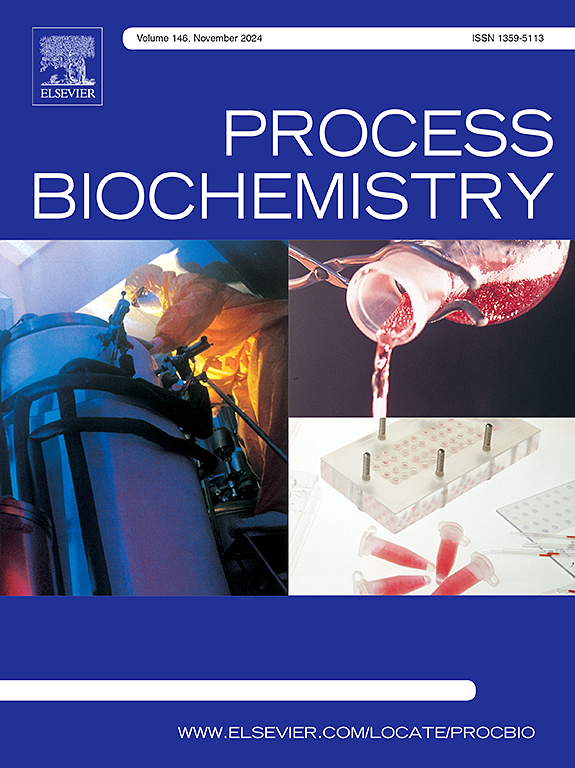Purification of messenger RNA directly from crude IVT using polyethylene glycol and NaCl precipitation
IF 4
3区 生物学
Q2 BIOCHEMISTRY & MOLECULAR BIOLOGY
引用次数: 0
Abstract
The increasing demand for mRNA-based therapeutics requires scalable and cost-effective purification methods. Chromatography-based approaches, such as Oligo-dT affinity chromatography, require multiple processing steps, including buffer exchange and high-temperature treatments, which can lead to mRNA degradation and increased costs. Although precipitation is commonly used at the lab scale, its application in large-scale mRNA purification remains underexplored. In this study, we developed a rapid and efficient precipitation-based method for mRNA purification. The effects of different precipitation conditions, including salt type, co-precipitating agents, and time, were evaluated in terms of recovery yield and purity. Precipitation experiments were conducted for two different in vitro transcription crude materials containing mRNAs of varying lengths and concentrations. The optimal conditions, identified as a combination of NaCl and PEG 6000, achieved recovery yields of 80–93 % and purities of 80–83 %, with no detectable double-stranded RNA formation or fragmentation. The precipitated mRNAs were successfully transfected into 293 T and A549 cells, showing protein expression comparable to commercial and chromatography-purified mRNAs. These findings position PEG/NaCl precipitation as a rapid, scalable, and cost-effective alternative to traditional chromatography methods, significantly reducing process complexity and time for large-scale mRNA production.
用聚乙二醇和NaCl沉淀法直接从粗IVT中纯化信使RNA
对基于mrna的治疗方法日益增长的需求需要可扩展的和具有成本效益的纯化方法。基于色谱的方法,如Oligo-dT亲和色谱,需要多个处理步骤,包括缓冲交换和高温处理,这可能导致mRNA降解和成本增加。虽然沉淀通常用于实验室规模,但其在大规模mRNA纯化中的应用仍未得到充分探索。在这项研究中,我们开发了一种快速有效的基于沉淀的mRNA纯化方法。考察了不同沉淀条件(盐种、共沉淀剂、沉淀时间)对其收率和纯度的影响。对含有不同长度和浓度mrna的两种不同体外转录原料进行了沉淀实验。最佳条件为NaCl和PEG 6000的组合,回收率为80-93 %,纯度为80-83 %,未检测到双链RNA形成或断裂。将沉淀的mrna成功转染到293 T和A549细胞中,显示出与商业和色谱纯化的mrna相当的蛋白表达。这些发现表明,PEG/NaCl沉淀法是一种快速、可扩展且具有成本效益的传统色谱法替代方法,可显著降低大规模mRNA生产的工艺复杂性和时间。
本文章由计算机程序翻译,如有差异,请以英文原文为准。
求助全文
约1分钟内获得全文
求助全文
来源期刊

Process Biochemistry
生物-工程:化工
CiteScore
8.30
自引率
4.50%
发文量
374
审稿时长
53 days
期刊介绍:
Process Biochemistry is an application-orientated research journal devoted to reporting advances with originality and novelty, in the science and technology of the processes involving bioactive molecules and living organisms. These processes concern the production of useful metabolites or materials, or the removal of toxic compounds using tools and methods of current biology and engineering. Its main areas of interest include novel bioprocesses and enabling technologies (such as nanobiotechnology, tissue engineering, directed evolution, metabolic engineering, systems biology, and synthetic biology) applicable in food (nutraceutical), healthcare (medical, pharmaceutical, cosmetic), energy (biofuels), environmental, and biorefinery industries and their underlying biological and engineering principles.
 求助内容:
求助内容: 应助结果提醒方式:
应助结果提醒方式:


